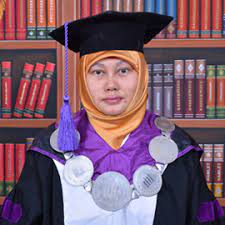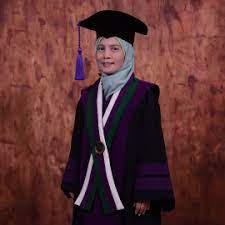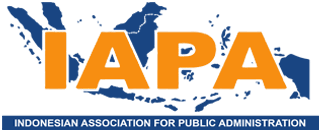OPTIMIZATION OF OUKUP STEAM BATHS AS ECO-WELLNESS TOURISM ATTRACTIONS
OPTIMIZATION OF OUKUP STEAM BATHS AS ECO-WELLNESS TOURISM ATTRACTIONS
DOI:
https://doi.org/10.30997/jsh.v14i1.7676Keywords:
Eco-wellness tourism, Oukup, Tourism Attraction.Abstract
Karo Regency is one of the regencies in North Sumatra, Indonesia. Oukup is a traditional Karo steam bath using spices. Oukup is usually used as a cultural activity, but currently it tends to be used as a front for prostitution businesses. This research was conducted to describe the potential possessed by oukup as a traditional Karo steam bath which is then expected to become an option for the development of health ecotourism in Indonesia. This research is a descriptive research with an exploratory survey approach with a phenomenology approach. Data analysis was carried out by analyzing supply as an object of supply by looking at the indicators of health tourism resources. Optimization of oukup as an attraction for health ecotourism is by establishing an oukup observer organization, making policies and regulations related to oukup development, development of oukup objects, cultivating medicinal plants as materials for the implementation of oukup and those related to oukup as well as development of marketing and promotion of oukup products.
References
Altinay, L., & Paraskevas, A. (2007). Planning research in hospitality and tourism. Planning Research in Hospitality and Tourism, 1–247. https://doi.org/10.4324/9780080555942
Batubara, R. P. (2020). Strategi Pengembangan Oukup Sebagai Ekowisata Kesehatan Kabupaten Karo. Jurnal Ilmiah Pariwisata, 25(2), 121–132.
Batubara, R. P., A.M.Zuhud, E., Hermawan, R., & Tumanggor, R. (2017). Nilai Guna Spesies Tumbuhan Dalam Oukup (Mandi Uap) Masyarakat Batak Karo. Media Konservasi, 22(1), 79–86.
Capellini, S. (2012). The Complete Spa Book for Massage Therapists. Cengage Learning. https://books.google.cz/books?id=OeIIAAAAQBAJ
Chen, K. H., Chang, F. H., & Kenny, C. W. (2013). Investigating the wellness tourism factors in hot spring hotel customer service. International Journal of Contemporary Hospitality Management, 25(7), 1092–1114. https://doi.org/10.1108/IJCHM-06-2012-0086/FULL/XML
Cooper, C., Fletcher, J., Gilbert, D., Fyall, A., & Wanhill, S. (1998). Tourism Principles and Practice. Scientific Research Publishing. https://www.scirp.org/(S(351jmbntvnsjt1aadkozje))/reference/referencespapers.aspx?referenceid=1290915
Csirmaz, É., & Pető, K. (2015). International Trends in Recreational and Wellness Tourism. Procedia Economics and Finance, 32(15), 755–762. https://doi.org/10.1016/s2212-5671(15)01458-6
Global Spa Summit. (2010). Spas and the global wellness market: synergies and opportunities. In Prepared by SRI International (Issue May). http://scholar.google.com/scholar?hl=en&btnG=Search&q=intitle:Spas+and+the+Global+Wellness+Market+:+Synergies+and+Opportunities#1
Ikbar, Y. (2012). Metode Sosial Penelitian Kualitatife. Refika Aditama.
Institute, G. W. (2020). Defining The Mental Wellness Economy.
KEMENKES RI. (2004). PMK Tahun 2004 Pedoman Persyaratan Kesehatan Pelayanan Sehat Pakai Air (SPA) (pp. 1–29).
Melanie Smith, L. P. (2009). Health and Wellness Tourism. Elsevier.
Nasution, J., & Chandra, R. (2010). Etnobotani Oukup, Ramuan Tradisional Suku Karo Untuk Kesehatan Pasca Melahirkan. Agrobio, 2(1).
Organization, W. T. (2018). UNWTO Tourism Highlights 2018 Edition. https://doi.org/10.18111/9789284419876
Peraturan Pemerintah RI Nomor 50 Tahun 2011 Tentang Rencana Induk Pembangunan Kepariwisataan Nasional Tahun 2010-2025, lim Rencana Induk Pembangunan Kepariwisataan Nasional Tahun 2010 - 2025 1 (2011).
Purba, E. C., Nisyawati, & Silalahi, M. (2016). The ethnomedicine of the Batak Karo people of Merdeka sub-district, North Sumatra, Indonesia. International Journal of Biological Research, 4(2), 181. https://doi.org/10.14419/IJBR.V4I2.6493
Salsabeilla, N. C., Nur, S. A., Iftitah, A. N., Firawati, & Sasmita. (2021). Budidaya Tanaman Obat Keluarga untuk Mengaktualisasi Program Go Green di SMK Telkom Makassar. Jurnal Lepa-Lepa Open, 1(3), 511–519.
Sari, D. P., & Batubara, R. P. (2021). Analisis Komponen Website Desa Wisata Cimande sebagai Media Promosi Elektronik (E-TOURISM). Jurnal Sosial Humaniora, 12(1), 45–53.
Susanti, H. (2022). Wellness tourism sebagai Bentuk Adaptasi terhadap Dinamika Pariwisata Bali di Era New Normal. Jurnal Sosiologi USK, 16(1), 1–11.
Voigt, C., & Pforr, C. (2013). Wellness Tourism: A Destination Perspective. Wellness Tourism: A Destination Perspective, 1–316. https://doi.org/10.4324/9780203079362/WELLNESS-TOURISM-CORNELIA-VOIGT-CHRISTOF-PFORR
Yuwono, R., & Astuti, D. W. (2021). Seminar Ilmiah Arsitektur II. Potensi Pengembangan Wellness Hospitality Tourism Di Tawangmangu, 282–292.
Downloads
Published
How to Cite
Issue
Section
License
Copyright (c) 2023 Jurnal Sosial Humaniora

This work is licensed under a Creative Commons Attribution-ShareAlike 4.0 International License.
Authors submitting manuscripts must understand and agree to copyright the manuscript of the article was transferred to OJS Djuanda University. All rights reserved. The copyright release statement for the Journal of Social Humanities is set out in the Agreement Transfer of Copyright. This work is licensed under Creative Commons Attribution-ShareAlike (CC BY-SA) version 4.0 where Author and Readers can copy and redistribute material in any media or format , as well as mixing, modifying and building materials for any purpose, but they must provide appropriate credit (citing articles or content), provides a link to the license, and indicates when changes have been made. If you mix, modify, or develop, the materials you have to distribute your contributions are under the same license as the originals.
















